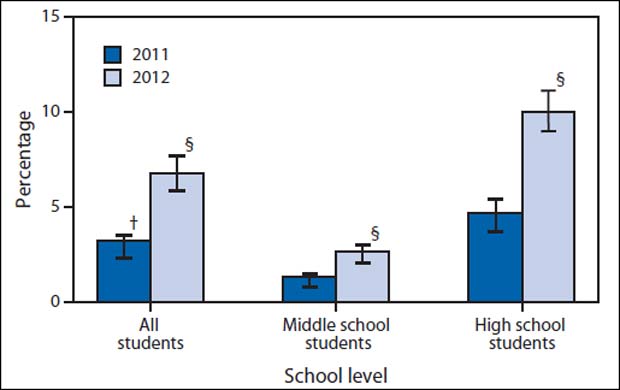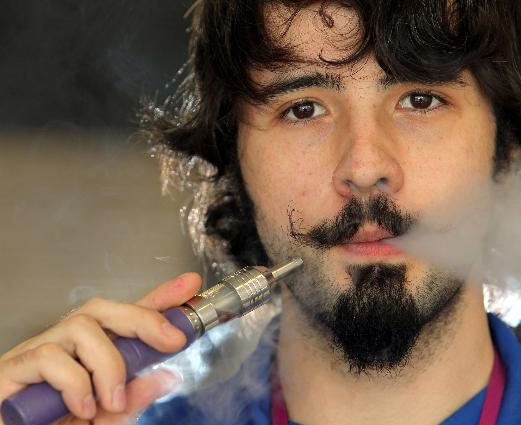Democratic Senators Pounce on E-Cigarettes After CDC Study Shows Teen Use Spike
By STEVEN NELSON
Five Democratic U.S. senators condemned tobacco-free electronic cigarettes as a gateway to cancer-causing tobacco ones, and promised to do something about it Thursday after the release of a government study showing a sharp uptick in the percentage of teens who tried one of the vapor-producing devices in 2012.
From 2011 to 2012 the percentage of high school students who had ever tried an electronic cigarette doubled from 4.7 percent to 10 percent, according to data released by the Centers for Disease Control and Prevention in its annual National Youth Tobacco Survey.
[RELATED: U.S. News Talks With the CDC’s Anti-Smoking Director About E-Cigs]
More than 92 percent of high school students who reported trying an electronic cigarette had also smoked a tobacco cigarette, but it’s unclear which they sampled first. Just 2.8 percent of high school students reported smoking an electronic cigarette in the past month, an increase from 1.5 percent in 2011. By contrast, in 2011 the CDC found 18.1 percent of high school students smoked a conventional cigarette in the past month. The 2012 data for tobacco cigarettes is not yet available.
Electronic cigarettes are touted as a healthy alternative to their foul-smelling cousins and their popularity is booming. Immediately after the CDC release, however, several senators characterized the companies behind the boom as unethical predators.
Sen. Richard Blumenthal, D-Conn., was particularly vitriolic in his attack, citing the various flavors of nicotine-laced liquid offered by e-cigarette vendors as evidence of the companies’ “very clear intent of creating a new generation of smokers.”
“Without question,” Blumenthal said in a press release, “tobacco companies are using the same despicable tactics with e-cigarettes that they used in previous decades with traditional cigarettes to lure youth down a path of nicotine addiction and eventual death.”
Senate Majority Whip Dick Durbin, D-Ill., described the uptick as “a call to action.”
[STUDY: One in Five U.S. Smokers Has Tried an ‘E-Cigarette’]
“This scientific report provides conclusive evidence,” Durbin said, “that the use of e-cigarettes among our nation’s kids is both on the rise and closely linked to the deadly use of cigarettes.”
Sen. Tom Harkin, D-Iowa, denounced companies’ “unproven claims that [electronic cigarettes] are a safe alternative to conventional cigarettes or can help smokers quit – underscoring the urgent need for greater research into these products.”
Sen. Tom Carper, D-Del., said “these products still pose serious dangers for kids and adults alike, despite their perceived image as safer alternatives to cigarettes. Regardless of the vehicle, smoking and nicotine use cost our country greatly, in terms of both health care dollars and lives lost. ”
Sen. Ed Markey, D-Mass., claimed “e-cigarettes are a gateway to tobacco use by children and teens and should not be marketed to youth.”
But advocates of electronic cigarettes say there’s no evidence they cause any health problems and say there’s nothing particularly exceptional about teen experimentation with the devices.
“Real public health practitioners and policymakers should not allow experimentation by youth to cloud their judgment about the great health benefits experienced by adult smokers who switch to e-cigarettes,” said Greg Conley, legislative director of the Consumer Advocates for Smoke-free Alternatives Association, in a statement provided to U.S. News.
Not all states ban the sale of the devices to minors, Conley pointed out. CASAA supports new state laws to restrict their sale to adults, but also wants adults e-cigarette smokers to be left alone.



